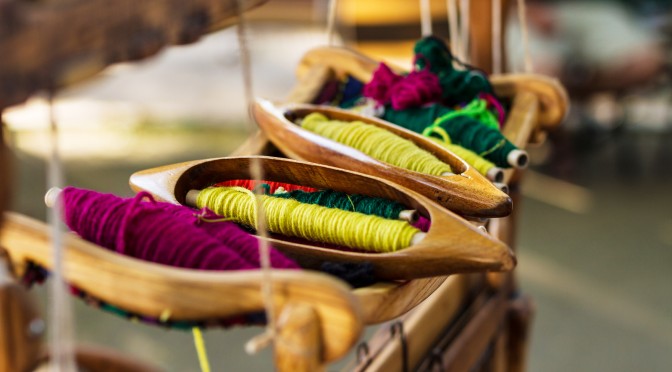A weekly round up of articles about employment, the labor market, skills training and workforce development. This week’s round up is drawn from The Daily Star. Here is the news for the week ending 24th November 2016.
This week in the Bangladesh English Press…
…Businesswomen struggle to get bank loans while Jamdani weavers gain recognition of their craft. Saudia Arabai welcomes Bangladeshi doctors but turn male labourers away. And Bangladesh looks to greater self-sufficiency in pursuit of its development goals.
Businesswomen Face Credit Crunch
The Government has policies to support women entrepreneurs. There are favourable interest rates and provisions to facilitate loans of up to 2,500,000 Taka.
But a recent study shows most women cannot access finance to support their businesses.
It seems banks are not helping aspiring businesswomen. Less than 4 per cent of loans to small and medium sized by value go to women-owned businesses.
Women are not happy with banks. They have to make several trips over a period of several months to get a bank loan.
Banks and women entrepreneurs must learn from the failings of current arrangements to get funds flowing says the International Finance Corporation’s report
Recognition for Traditional Weavers
We’ve written so many time about the struggles of Bangladeshi artisans.
Weavers, goldsmiths, and makers of musical instruments face a fall in demand for the precious creations.
But here’s some good news.
Jamdani is the first product in Bangladesh to gain Geographic Indication.
Jamdani is a fine fabric woven from cotton in Dhaka for hundreds of years.
Geographic Indication means that only cloth produced in the Dhaka area using traditional methods can be called Jamdani. No other cloth or products can be “Jamdani.”
The Bangladesh Department of Patents, Designs and Trademarks will register weavers to use the Jamdani mark. And the Bangladesh Small and Cottage Industries Corporation has already submitted a list of 400 Jamdani weavers to the department.
Migrant Workers Squeezed
Bangladeshi workers in Europe, Saudi Arabia and Malaysia see their remittances drop.
The stronger dollar is partly responsible for this decline. Bangladesh expatriates have to convert their wages – in Pounds, Euros, or Ringits – into dollars before sending them home.
And opportunities for hopeful workers face another restriction. Saudi Arabia is limiting the application of male workers because the number of female applicants is lower than the 25 per cent allocation.
The Ministry of Expatriates Welfare and Overseas Employment negotiated with the Saudi authorities to solve a similar problem last year.
But the good news is that Saudia Arabia is now opening its doors to one thousand doctors.
This follows a ten-year ban on recruitment of health professionals. The ban was imposed by Saudia Arabia after allegations of recruitment mismanagement.
Overseas Development Assistance Down
Bangladesh only received about 40% of overseas development commitments.
And in any case overseas development assistance is now only 1.6 per cent of Gross Domestic Product. Twenty five years ago it was 5.6 per cent.
And that’s all the news this week from The Daily Star.
